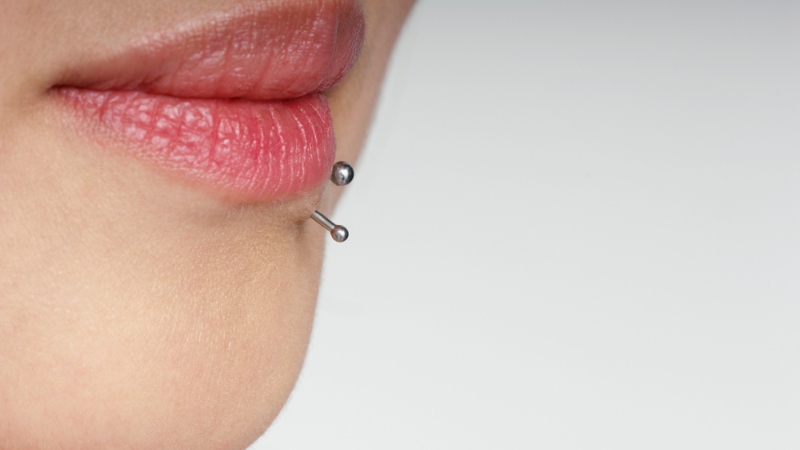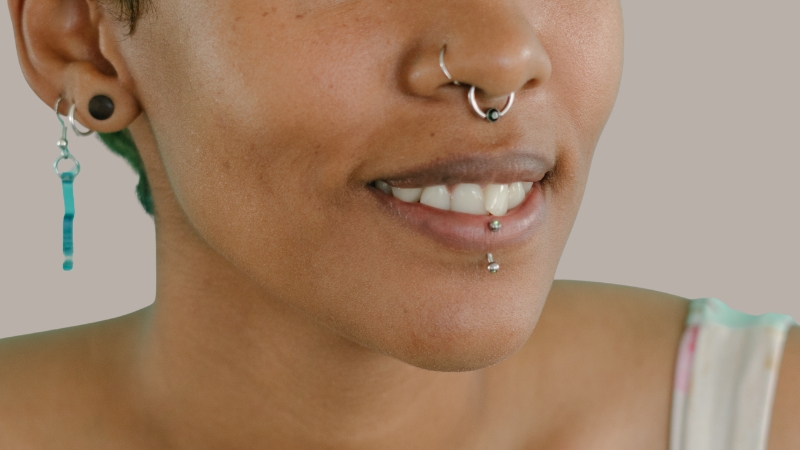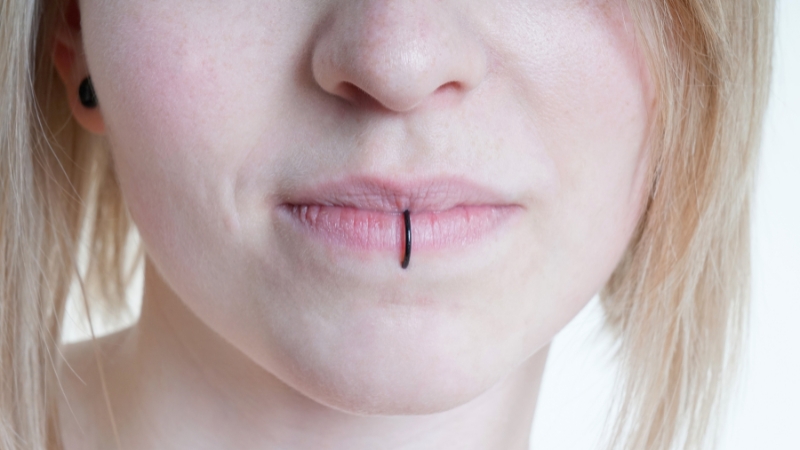As you consider getting a lip piercing, it’s essential to understand the potential lip piercing risks and the safety of oral piercings.
Oral piercings pose a greater risk to health than other body piercings due to difficulty in care and higher infection susceptibility. You should be aware of the potential risks to your oral health before making a decision.
Oral piercings can increase the difficulty of oral care, and official recommendations suggest avoiding oral piercings due to potential health complications.
The safety of oral piercings is a concern, and you should take the time to learn about the potential risks, including infections, extended bleeding, pain, swelling, chipped or cracked teeth, gum injuries, and ingestion of jewelry.
Understanding the potential risks and taking steps to minimize them can help you make an informed decision about getting a lip piercing.
In the following sections, we’ll delve deeper into the potential risks and discuss ways to maintain good oral hygiene and minimize the risks associated with lip piercings, including the importance of proper care and regular checkups with a dentist to catch early signs of tooth or gum damage.
Lip Piercing Safety and Common Risks

Getting a lip piercing can be a fun way to express yourself, but it’s important to understand the safety aspects involved. The mouth is a unique environment with lots of bacteria and constant movement, which can increase the infection risk from lip piercings.
Here are some common lip piercing complications you should be aware of:
- Infections: Redness, swelling, and discharge can indicate an infection.
- Chipped or cracked teeth: Jewelry can damage your tooth enamel over time.
- Gum injury: Piercings can cause cuts or tears in your gums.
- Allergic reactions: Metals like nickel can cause allergic responses.
- Keloids: Excessive scar tissue can form around the piercing site.
Maintaining proper hygiene is crucial to minimizing these risks. Regular cleaning helps prevent infections and promotes healing.
People with certain health conditions, such as heart disease or diabetes, should consult a healthcare professional before getting a piercing.
“Oral piercings require diligent care to avoid complications that can affect both your oral and overall health,” says Dr. Emily Hart, DDS.
Be mindful of these risks to ensure your lip piercing is a safe and stylish addition to your appearance.
How Lip Piercings Impact Your Oral Health
Getting a lip piercing can be a fun way to express yourself, but it’s important to understand how it might affect your mouth. The impact of lip piercings on gums and teeth can lead to several dental issues from lip piercings.
Effects on Your Gum Tissue
Lip piercings can cause significant gum damage from piercings. The jewelry may rub against your gum tissue, leading to gum recession.
Studies have shown that up to 50% of individuals with lip piercings experience gingival recession, which can expose tooth roots and increase sensitivity.
Potential Damage to Tooth Enamel
Continuous contact between the piercing jewelry and teeth can wear down tooth enamel. Approximately 26% of individuals with lip piercings have reported tooth damage.
This erosion makes teeth more vulnerable to decay and sensitivity.
Risk of Oral Infections
View this post on Instagram
Lip piercings create openings for bacteria to enter the mouth, raising the risk of oral infections. Poor hygiene around the piercing area can lead to complications like gingivitis or more severe infections.
Impact on Speaking and Eating
Having a lip piercing can affect your ability to speak clearly and comfortably eat certain foods. The presence of jewelry might interfere with tongue movement, making articulation difficult and causing discomfort during meals.
Essential Aftercare Tips for Safe Lip Piercings

Taking proper care of your new lip piercing is crucial to ensure healing and prevent complications. Adhering to good dental care with lip piercings can make a significant difference.
- Keep It Clean: Rinse your mouth with an antibacterial mouthwash or a saltwater solution three to six times daily to remove bacteria.
- Avoid Chewing Gum: Steer clear of gum during the healing period to prevent irritation and dislodging the jewelry.
- Maintain Oral Hygiene: Brush and floss regularly, being gentle around the piercing area to avoid damage.
- Hands Off: Refrain from playing with the jewelry to minimize the risk of introducing bacteria.
Additionally, schedule regular dental check-ups to monitor the health of your gums and teeth. Preventing infections and addressing any issues early on is part of effective dental care with lip piercings.
| Aftercare Step | Recommended Products | Purpose |
|---|---|---|
| Rinsing | Antibacterial Mouthwash, Saltwater Solution | Reduces bacteria and promotes healing |
| Cleaning | Sterile Saline Spray | Removes debris and keeps the area clean |
| Hydration | Alcohol-Free Mouth Rinse | Prevents dryness and irritation |
Making an Informed Decision About Lip Piercings
@doctor.sahil ORAL PIERCINGS? #piercing #dentist #fyp #oralhealth ♬ original sound – Sahil
Considering whether lip piercings are safe is essential for your oral health. Many choose lip piercings for self-expression, but it’s important to understand the risks involved.
Oral piercings can lead to infections, tooth damage, and gum issues if not properly cared for.
To ensure your safety, always have your piercing done by a professional in a sterile environment. Using high-quality materials like surgical stainless steel or titanium can reduce the risk of allergic reactions and infections.
Maintaining excellent oral hygiene is crucial to preventing complications during the healing process.
Think about how a lip piercing might affect your daily activities, such as speaking and eating. It’s also wise to consult with your dentist before getting pierced to discuss any potential risks based on your dental health.
They can provide personalized advice and help you make the best choice for your situation.
Weigh the aesthetic benefits against the possible health concerns. By being informed and taking the right precautions, you can make a decision that aligns with both your style and well-being.
Remember, prioritizing your oral health is key when considering any modifications like lip piercings.

